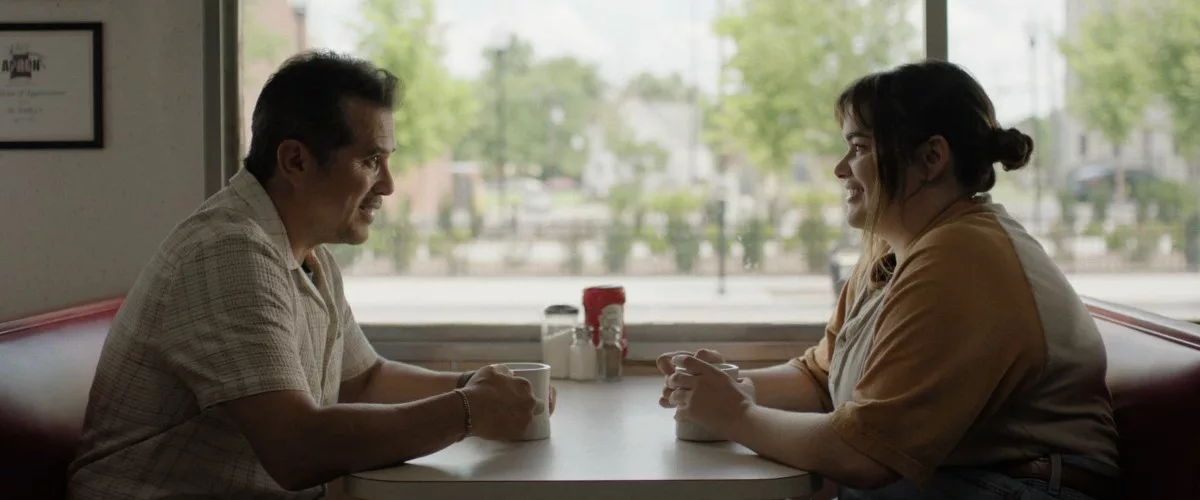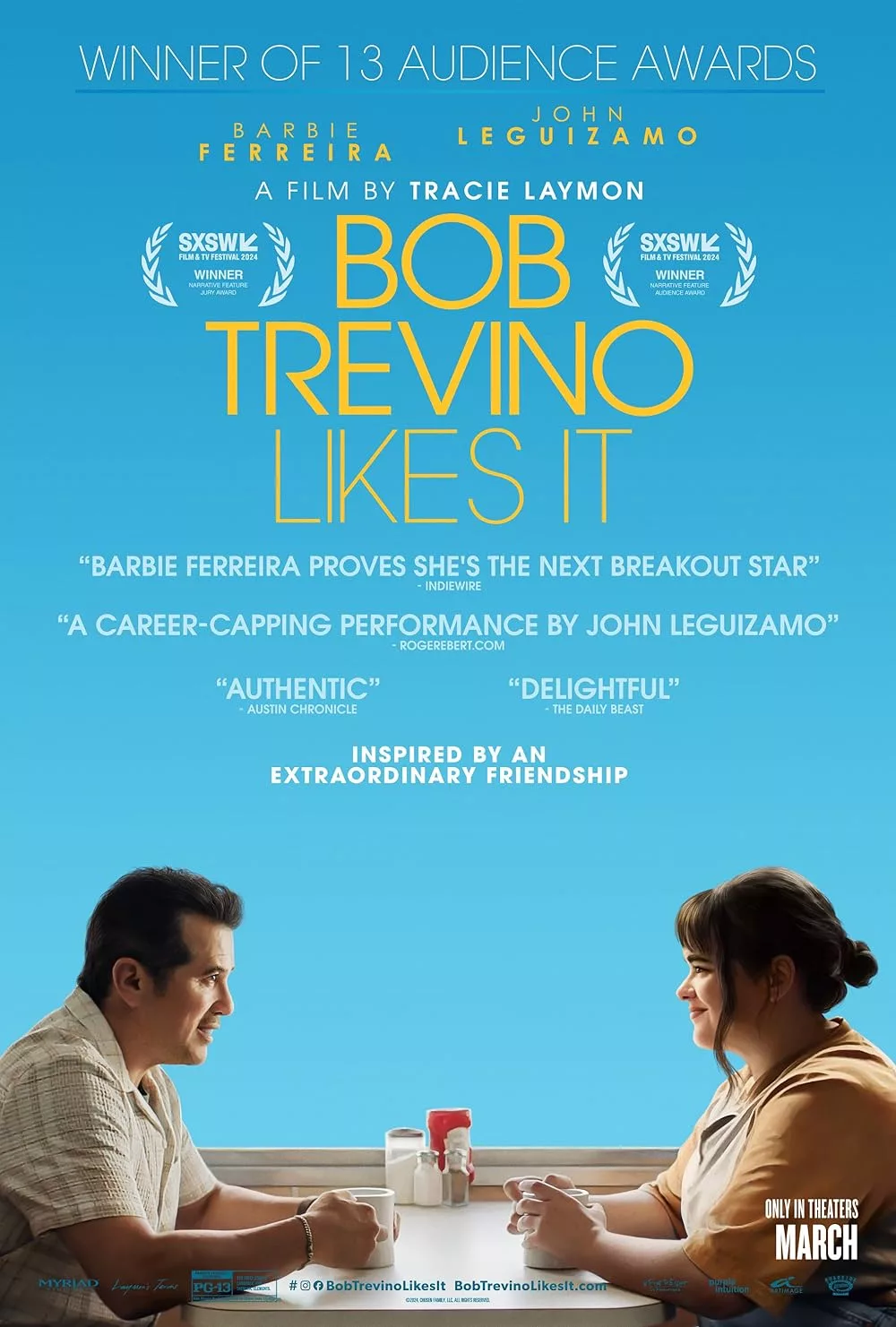In “Bob Trevino Likes It,” directed by Tracie Laymon, there are two Bob Trevinos. Robert Trevino (French Stewart) is a narcissistic father, one who holds love at a conditional arm’s length and provides his daughter with an itemized list of every expense it took to raise her. Lily (Barbie Ferreira), his daughter, is a bubbly, wandering soul. Her high-spirited personality masks a muddied, traumatic childhood that she proudly owns (despite the completely, though comedically inappropriate sob session it provoked from her therapist). Her mother, a drug addict, left at an early age, and her father, a neglectful manipulator, raised her solo.
Working as a live-in caretaker for the charmingly caustic Daphne (Lauren Spencer), Lily faces the world with light despite lacking a community of wires to help ignite her. Desperate for an unlikely, inopportune change of heart for her father during his latest silent treatment, she searches his name in Facebook and stumbles across a blank profile for “Bob Trevino.”
The second Bob Trevino (John Leguizamo) is a timid construction manager, spending his days wishing for a raise and supporting the scrapbooking habit of his melancholy wife. He’s gentle. When he accepts Lily’s friend request, what begins as a simple inquiry into whether they’re related (they’re not) evolves into a pillowy tale of chosen family.
“Bob Trevino Likes It” is overly convenient but touching, nonetheless. Lily and Bob are broken in inverse ways that seamlessly latch together with only enough trouble to set the stage for predictable melodrama. Yet the moments in between are the ones that feed the story’s sincerity. And even in the film’s more saccharine moments, Ferreira glows. Decently absent from starring positions onscreen since Kat’s exit from her breakout role in “Euphoria,” her performance as Lily is a satisfying introduction to mature filmic work.
Leguizamo stuns equally as Bob, an unassuming, tranquil man who holds Lily’s heart with the softness of hands cradling water. The chemistry of the duo is palpable and heartwarming. From an evocative moment of healing at an animal shelter to a sarcastic romp at the basketball court, the two live in the rolled eyes and tender embraces of father-daughterhood that Lily has always longed for. And as we come to find out about Bob’s own relationship with loss, the film unveils the complementary catharsis its leads seek.
The yearning for familial healing in the face of shattered expectations is the core of “Bob Trevino Likes It,” but it stays comfortably on the surface. Inspired by Laymon’s relationship with a real Bob Laymon (though it’s not clear just how much is truly memoir), the film’s sincerity and uncomplicated nature feel serviceable to a eulogizing film (marked by the memorial at the end) that doesn’t get its hands too far into the implications of its spiderweb of relationships.
Lily, Bob, and Robert have unambiguous dynamics–healing and toxic; stable and volatile; easy and hard. Laymon plays with your heartstrings easily on account of this, and while it’s moving, it’s also sanitized. But whether it’s Daphne pondering how much of their friendship is occupational obligation, or Lily’s ex repeatedly texting her messages meant for another woman, Laymon’s script desires depth without putting much work into achieving it. It even baits the viewer with thoughtful initiative on the social conventions of relationships in the era of unbridled online access. Lily googles “how to get someone to forgive you” and ultimately projects desire onto Bob’s blank slate profile. These wide expanses of self-insertion that the internet allows are fertile grounds for interpersonal theorizing and investigation, but Laymon keeps it at the periphery to tell a much cleaner, textbook tale.
















